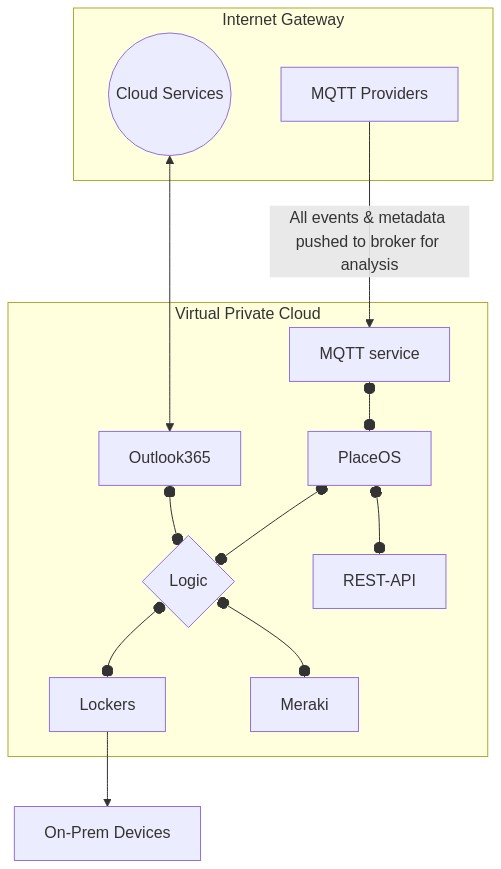MQTT Integration
PlaceOS supports publishing module state information via MQTT. This provides environment information to external systems such as Amazon MQTT Service
MQTT messages consist of a header and a payload and typically have low bandwidth usage. The header declares the topic of the message, and the payload carries data as key-value pairs. PlaceOS uses two types of message sent over MQTT: State Changes and Metadata.
State Change#
Changes to module state propagate in real time. All change messages share the following topic structure:
In this structure, each section is a unique identifying tag to represent part of the system.
<org>: Organization ID<bld>: Building ID<lvl>: Level ID<area>: Area ID<sys>: System ID<drv>: Driver ID<mod>: Module ID<idx>: Module Index<state>: State Key
On a state change, the module will publish a message with the payload containing the new state value as a JSON entity. The associated driver defines the structure and frequency of this state change.
Some systems may not have a building, level, or area.
If they generate a state change, the missing topic level will be an underscore character (_).
State Change Payload#
The payload is the value of the status variable paired with a timestamp
Metadata#
Metadata is available for building, level, area, system and driver tiers. The format is this persistent topic:
Metadata Payloads#
Metadata payloads are JSON objects that contain model info for the publishing entity. This includes the human-readable "friendly name", e.g.
Wildcard Subscriptions#
Wildcards can replace any topic level to catch state information across different services. Some common examples are:
All events within a building:
Connected status of all devices:
Power status for all displays:
Call status information for Cisco VC endpoints (dep-123 is the driver ID for Cisco VC):
Privacy#
Some deployment requirements may include filtering of sensitive information. The system parses state changes for content such as email addresses or user IDs before they propagate. A match can lead to actions such as:
- Replacing the value with a hashed version of itself
- Masking the value
- Dropping the associated event
Cloud Brokers#
PlaceOS can integrate with MQTT Brokers including the major service providers listed below.



